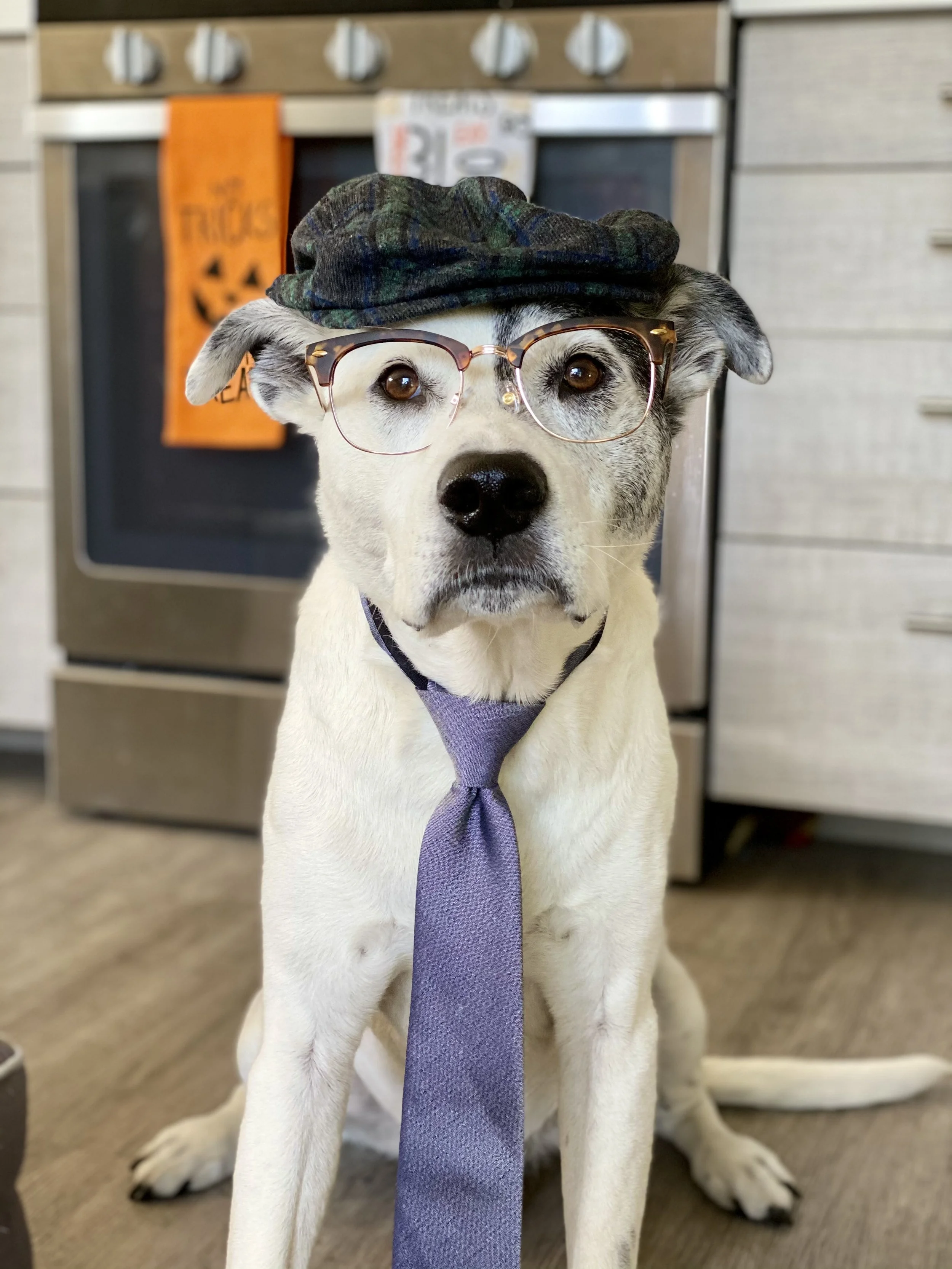Senior Care
Senior dogs bring a unique kind of love and joy into our lives, enriching each day with their wisdom, loyalty, and gentle companionship. As they enter their golden years, it's our responsibility to ensure their comfort and happiness, making every moment memorable and filled with love. Despite their age or the length of time they've been with us, senior dogs deserve to live their twilight years to the fullest, surrounded by care and affection. Adopting or fostering a senior or hospice dog requires a special kind of person — one with boundless compassion, patience, and understanding. The Good Boy Foundation is deeply grateful for these individuals who open their hearts and homes to provide love and comfort to senior dogs in need.
When Is My Dog Considered A Senior?
While many believe in the "one human year equals seven dog years" rule, aging isn't quite so straightforward for our dogs. The pace at which dogs age varies across breeds and sizes, leading to differing interpretations of when a dog is considered a senior. Generally, larger breeds tend to age more rapidly than smaller ones.
Small breed dogs are considered senior dogs ~ 10-12 years old.
Medium size breed dogs are considered senior dogs ~ 8-9 years old.
Large and giant breed dogs are considered senior dogs ~ 6-7 years old.
Some aging signs to look for include:
White hairs on the muzzle and face
Muscle loss
Increased opacity in the eyes due to thickening of the lens over time (sometimes mistaken for cataracts)
Weight gain / loss
Sleeping more
Loss of hearing
Gum disease
Changes in behavior, such as staring blankly at walls or corners
Keeping A Senior Mind + Body Healthy
With proper love and care, senior dogs can maintain their vitality much like their younger counterpups. Key considerations include regular veterinary check-ups, a balanced diet, and appropriate exercise + mental stimulation tailored to their age. Aging dogs are more susceptible to certain illnesses like hormonal imbalances, cancer, and arthritis. Therefore, establishing a good relationship with your favorite veterinarian and scheduling bi-annual physical exams and recommended tests is crucial.
Early detection of diseases improves the chances of successful treatment, ensuring a higher quality of life for your aging canine companion. You can read more about how this saved Deuce’s life on the health + wellness page.
Ensuring the health of your senior dog involves more than just physical activity; mental stimulation is equally important. Regular exercise is vital for maintaining joint health, but it's essential to tailor activities to your dog's preferences and abilities. Some seniors may enjoy leisurely walks, while others may prefer swimming or gentle games of fetch. Additionally, engaging your dog's mind through training sessions is beneficial. Despite their age, senior dogs are capable of learning new tricks, which not only keeps their brains active but also strengthens the bond between you and your best friend.
Senior Safety
As your best friend ages, it's crucial to make adjustments to their living environment to ensure their safety and comfort. Consider some of the following:
Install ramps or steps to help them navigate stairs more easily.
Provide orthopedic bedding to support their joints and make sleeping more comfortable.
Adjust their diet to accommodate any new dietary restrictions or changes in metabolism.
Consider feeding smaller, more frequent meals to prevent digestive issues.
Schedule regular veterinary check-ups to hopefully help you to catch and address any health concerns early on.
Get an elevated food and water bowl holder to help prevent neck strain or back issues.
Use floor mats to prevent slips: grippy mats or rugs on the floor in areas where they frequently lay down and walk can be very helpful for their mobility. For example, setting a mat next to your dog’s bed can make it easier for them to stand up after a nap, or a mat in front of their elevated food and water bowl can keep them from slipping.
Keep food and water close so they don’t have to go as far if getting around is getting too hard for them.
Simplify furniture arrangements if you notice your dog having trouble with their vision or memory impairment of any kind. Don’t rearrange things often, which could throw their known paths off whack.
Use pet gates in areas that could be potentially harmful to your senior dog, including stairs, wide railings, big steps, etc.
Socializing A Senior Dog
The Good Boy Foundation is committed to providing valuable resources and education to empower pet parents in caring for their furry companions. However, it's important to note that the information provided on our website is intended for educational purposes only and should never replace the advice or treatment provided by a licensed veterinarian. While we strive to offer accurate and helpful guidance, we cannot be held responsible for any outcomes or consequences resulting from the application of this information. Pet parents are encouraged to consult with their veterinarian for personalized guidance and recommendations tailored to their pet's specific needs and circumstances.


